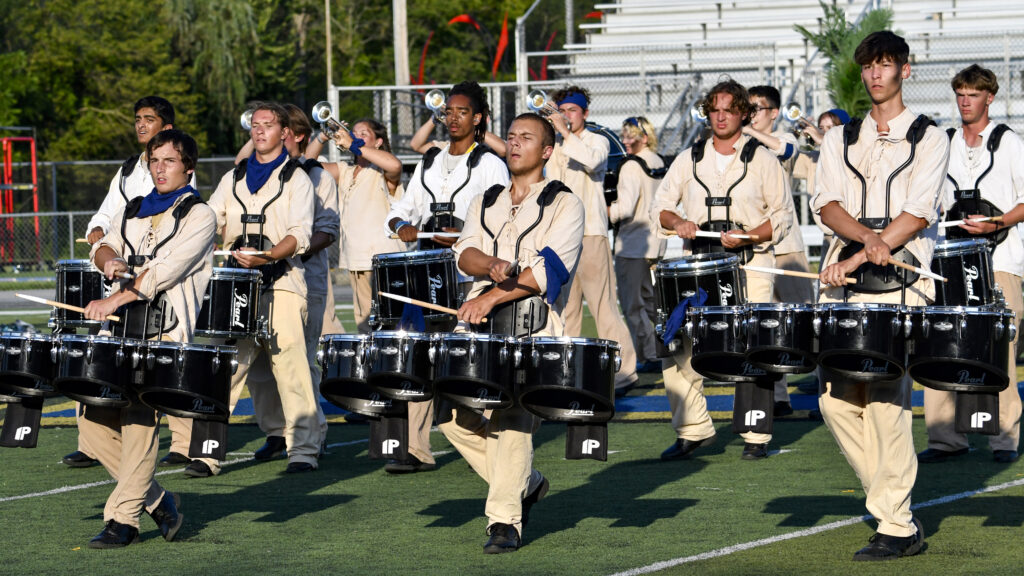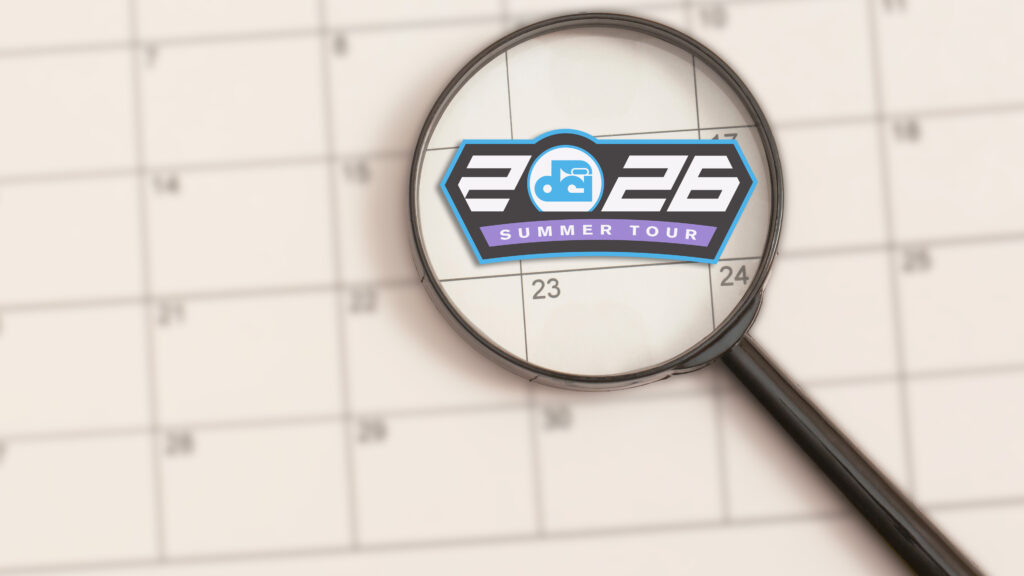
Thirteen years before the DCI World Championships went to Orlando in 1996 for the first of four visits, the 1983 events were held in Miami, Florida at Orange Bowl Stadium. The visit to Miami was good for the Garfield Cadets, who became the first corps from an eastern state to win the DCI title. Particularly memorable was the amazement of the audience at the new style of visual formations that Cadets’ drill writer George Zingali introduced to the activity. Miami was also good for Florida’s Suncoast Sound, in its first of seven finalist appearances. Two records were set in Miami that remain to this day: the 11th place Bridgemen made a spot in the Finals after scoring just 47.15 points in their first show of the summer. The corps’ increase of 30.55 points over the season is stunning when compared with this year’s 11th place corps, Spirit of Atlanta, which picked up 20.30 points from its first show to its last. The second record is the large 20.65-point spread between the 1st and 12th place corps at the Finals. The same spread in 2013 was just 12.85 points. The 9th place Cavaliers celebrated their 35th (jade) anniversary with an original opener composed by (shameless self promotion alert!) your trusty author Michael Boo. The title “Jade” came from then-visual instructor and assistant director Jeff Fiedler. During the first few months of the preseason the piece was known as “Jade Variations.” How “Jade” came to be was that the original planned opening piece, an update of the corps’ classic “Bully” (played five times by the corps between 1965 and 1970 and brought back as the Cavalier Alumni Corps’ opener in 2008), didn’t quite resonate with the staff. This was because they realized the tune couldn’t be updated enough to work with what was contemporary drum corps at the time. The corps’ arranger, due to time constraints, was unable to complete another work for the next winter rehearsal camp, for which the members were promised another opener. I was called and asked if I wanted to give it a try—three days before the camp at which the piece was due. Having never written for bugles before, but the proud holder of a master’s degree in composition, I went without sleep for a couple days and “Jade” was the result. The piece was so successful that I haven’t been asked to compose another piece for any corps since! Because I could, I selected the last two-thirds of the piece as this week’s video clip.
“Jade” sneaked off the starting line with an intro from the front ensemble and then brought in the horns with a rhythmic motif combining jazz and Spanish elements. The acrobatic exploits of the color guard members were prominently featured, showing off the prowess of the ensemble that had four months earlier won its third consecutive Winter Guard International World Championship title. In the video clip, you’ll notice that the drum line is utilizing triple tenors, which was rather retro as quads were already the norm and the line had previously utilized that configuration. Like the Cavaliers, Bridgemen also played on triple tenors in 1983. Corps staff member Tim Salzman first arranged an earlier version of the standstill concert production of Chick Corea’s “Celebration Suite” for the Guardsmen in 1978. The work was based off “No Mystery,” the fifth studio album by Return to Forever, a group fronted by keyboardist Corea. The album—winner of the 1975 Grammy Award for Best Jazz Performance by a Group—explored the recently popularized progressive jazz-rock fusion idiom rather than the Latin-infused music for which the ensemble had previously been known. All the members of the band contributed selections to the album, including 20-year-old guitarist Al Di Meola, who would show up in the corps’ next selection.

For this week only, you can save on the Legacy Collection DVD that contains this complete Cavaliers performance, along with all finalists from the 1983 DCI World Championships.
Buy the 1983 Legacy Collection DVD. (Available this week only 20% off. Regular price: $35.95.)
1983 Overview
Discount DVD offer ends Monday, Sept. 23 at 8:30 a.m. ET.

Michael Boo was a member of the Cavaliers from 1975-1977. He has written about the drum corps activity for more than a quarter century and serves as a staff writer for various Drum Corps International projects. Boo has written for numerous other publications and has published an honors-winning book on the history of figure skating. As an accomplished composer, Boo holds a bachelor's degree in music education and a master's degree in music theory and composition. He resides in Chesterton, Ind.





